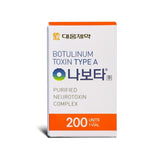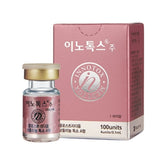Choosing the Right Whitening Products for Your Skin Type

Choosing the Right Whitening Products for Your Skin Type: Understanding Skin Whitening
The term 'whitening' in skincare refers to the use of products that aim to lighten hyperpigmentation, reduce the appearance of age spots, and provide an overall uniform skin tone. These products usually contain active ingredients that inhibit melanin production, the pigment responsible for skin color.
The Spectrum of Skin Types
Before delving into product selection, it's essential to identify your skin type as it influences how your skin will react to whitening products:
- Dry Skin: Prone to flakiness and tightness, requiring hydrating formulas.
- Oily Skin: Characterized by excess sebum and often a shiny appearance, needing non-comedogenic and oil-free options.
- Combination Skin: Exhibits both dry and oily areas, necessitating a balanced approach.
- Sensitive Skin: Reacts easily to irritants, requiring gentle, soothing ingredients.
- Normal Skin: Well-balanced skin that is neither too oily nor too dry, but still requires protection from harsh ingredients.
Choosing the Right Whitening Products for Your Skin Type: Key Ingredients in Whitening Products
Hydroquinone:
A potent melanin inhibitor, hydroquinone is effective in skin lightening but may not be suitable for all, especially those with sensitive skin.
Vitamin C:
An antioxidant that brightens skin tone and improves overall skin health, suitable for most skin types.
Kojic Acid:
Derived from fungi, kojic acid is a gentler alternative to hydroquinone that works well for most skin types, particularly for those with sensitive skin.
Niacinamide:
Also known as vitamin B3, niacinamide brightens skin tone while also strengthening the skin's barrier function.
Arbutin:
A naturally occurring derivative of hydroquinone found in plants, arbutin is less irritating and suitable for sensitive skin.
Tips for Choosing Whitening Products
Patch Test:
Always perform a patch test before fully integrating a new whitening product into your routine.
Read Labels:
Understand the concentration of active ingredients. Higher concentrations might provide quicker results but can also increase the risk of irritation.
Moisturizing Components:
For those with dry skin, look for whitening products with added moisturizing ingredients to prevent further dryness.
Oil Control:
Individuals with oily skin should opt for lightweight, gel-based products that control oil while providing whitening benefits.
Gentle Formulations:
Those with sensitive skin should choose products with gentler formulations and avoid high concentrations of aggressive whitening agents.
Incorporating Whitening Products into Your Routine
Gradual Introduction:
Start with a lower concentration and gradually work your way up, allowing your skin to adjust.
Consistent Application:
Consistency is key in achieving visible results, but patience is also necessary, as skin whitening can take time.
Sun Protection:
When using whitening products, diligent use of sunscreen is imperative, as these products can make your skin more sensitive to UV radiation.
Choosing the Right Whitening Products for Your Skin Type: Avoiding Common Pitfalls
Overuse:
Using too many whitening products simultaneously can lead to skin irritation, dryness, or damage.
Neglecting SPF:
Failing to use sunscreen can not only counteract the effects of whitening products but also lead to further pigmentation.
Unrealistic Expectations:
Understand that whitening products aim to improve skin tone and reduce pigmentation, not change your natural skin color.
The Role of Professional Advice
Consult a Dermatologist:
Seeking professional advice before starting any whitening regimen is crucial, particularly for those with skin conditions or severe pigmentation issues.
The Ethical Aspect of Skin Whitening
Cultural Sensitivity:
It's important to approach skin whitening with cultural sensitivity and personal care, recognizing that the goal is to improve skin health and treat pigmentation concerns rather than conforming to a beauty standard.
Choosing the right whitening products for your skin type is a journey that requires careful consideration, research, and often professional guidance. By selecting products with the appropriate active ingredients and formulations for your skin type, you can safely achieve a brighter, more even complexion. Remember, the ultimate goal of using whitening products should always be to enhance your skin's natural beauty while preserving its health and integrity.





